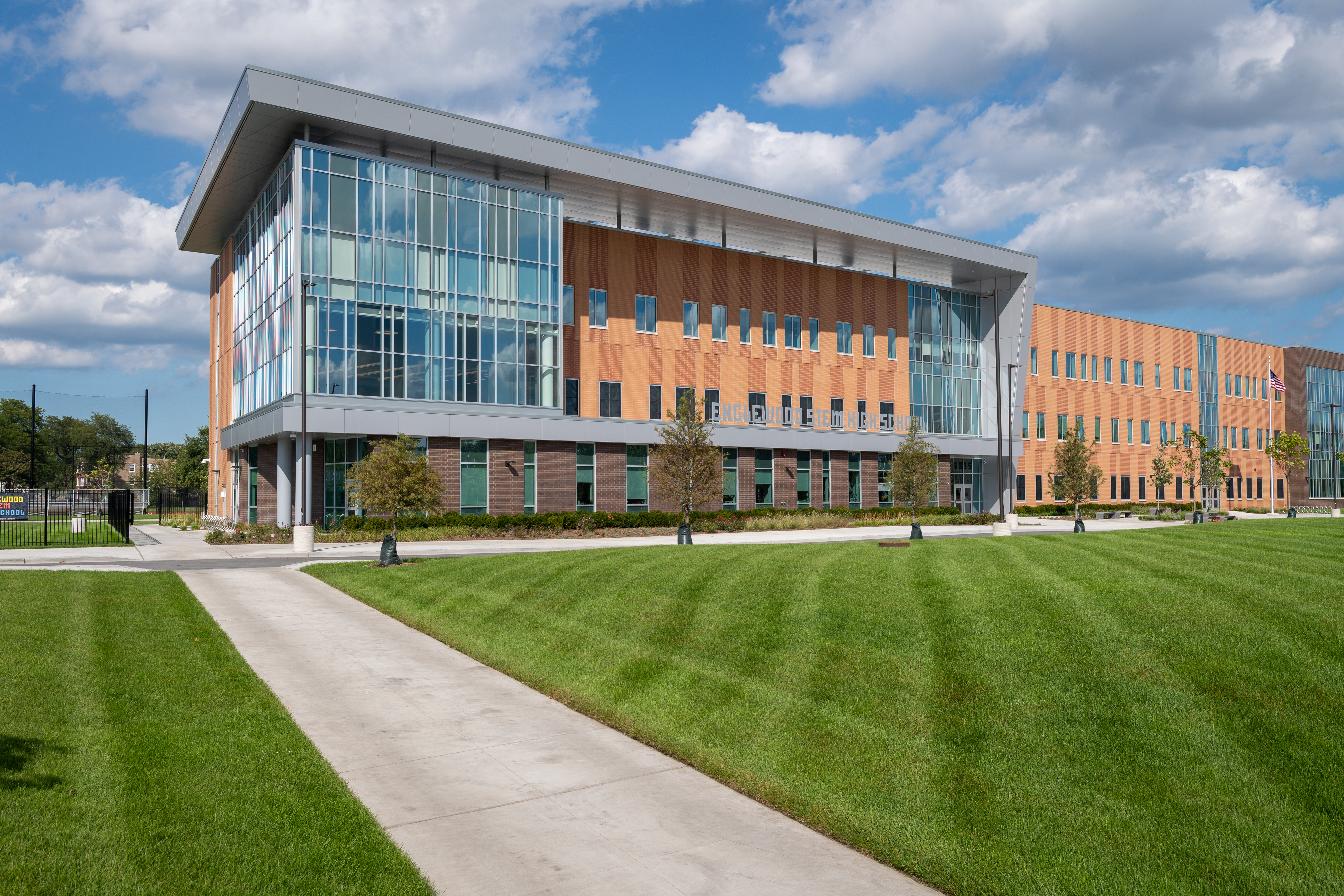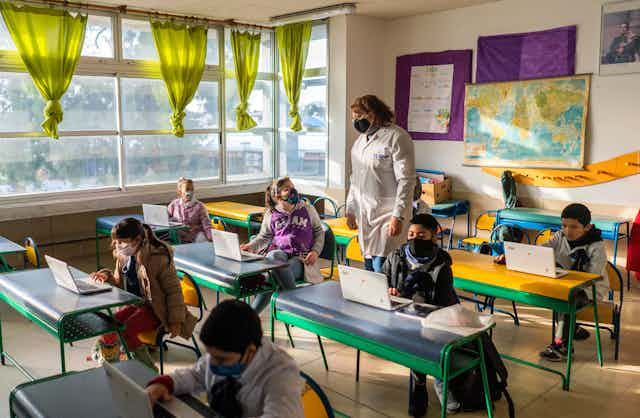Ingenious Solutions to Save Temecula Schools from Budget Cuts
Ingenious Solutions to Save Temecula Schools from Budget Cuts
Blog Article
Understanding the Value of Colleges in Child Growth and Community Growth
Schools function as crucial organizations for youngster growth and area growth, offering settings where academic achievements are matched by the farming of social abilities and direct exposure to diverse viewpoints. These educational setups not just promote important reasoning and effective communication however additionally foster empathy with collaborative jobs. In addition, colleges' involvement with local neighborhoods via service-learning campaigns enhances the bond in between family members and schools. This cooperative partnership highlights the significance of institutions in nurturing active citizenship and long-lasting knowing practices. Nevertheless, what are the certain mechanisms by which these organizations accomplish such extensive impacts?
Academic Success
Academic success works as a keystone of youngster growth, supplying the structure whereupon future understanding and success are built. Schools play a pivotal role in fostering this academic growth, using organized atmospheres where youngsters can acquire necessary expertise and cognitive abilities. Standardized curricula make sure that trainees gain proficiency in core topics such as mathematics, scientific research, and language arts, which are vital for both college and professional opportunities.
In enhancement to presenting basic scholastic skills, institutions likewise cultivate important thinking, analytic abilities, and intellectual interest. These cognitive competencies are crucial for browsing complicated real-world situations and adapting to the ever-evolving needs of the contemporary workplace. Educators, as facilitators of learning, utilize diverse pedagogical methods to deal with varied learning designs, thereby making the most of individual student capacity.
In addition, academic success is closely connected to self-esteem and motivation. Youngsters who experience academic accomplishments are more probable to develop a positive self-concept and a long-lasting interest for learning. Institutions likewise supply various sources, such as collections and technology, which better enhance the academic experience and prepare students for a technologically sophisticated culture.
Social Ability Growth
Beyond scholastic success, the function of schools in social ability growth is essential. Schools function as a primary location for kids to find out and exercise necessary social abilities such as problem, interaction, and teamwork resolution. In the structured environment of a classroom, students connect with peers, educators, and various other institution staff, offering various chances to create these important capabilities.
Reliable social ability growth in institutions is helped with through team tasks, joint jobs, and extracurricular programs. These interactions assist trainees understand social standards, build compassion, and promote a sense of neighborhood. For example, group assignments teach trainees just how to interact in the direction of an usual goal, pay attention to different viewpoints, and navigate differences constructively.

The cultivation of social skills during academic year lays a structure for future individual and professional connections. Save Temecula Schools. As students grow, the ability to successfully communicate and collaborate becomes progressively crucial, emphasizing the institution's critical role in holistic kid growth
Direct Exposure to Variety
Exposure to diversity in colleges is fundamental to fostering an inclusive attitude and widening pupils' viewpoints. Schools work as a microcosm of the broader culture, and running into diverse cultures, languages, and socioeconomic backgrounds within this atmosphere gears up trainees with vital skills for navigating an increasingly globalized globe. This direct exposure urges empathy, reduces prejudices, and advertises common regard amongst peers.
Diverse class likewise improve social and cognitive development. Research indicates that students who connect with peers from different backgrounds exhibit much Continued better problem-solving abilities and creative thinking. They find out to appreciate various viewpoints, which improves class discussions and cultivates a much more dynamic learning experience. Moreover, this understanding of variety prepares trainees for future offices that value multicultural capability.

Neighborhood Interaction
The advantages of diverse classrooms extend beyond the institution walls, fostering a solid feeling of area Related Site involvement amongst pupils. By communicating with peers from different cultural, socioeconomic, and ethnic backgrounds, trainees gain a broader point of view and an appreciation for diversity. This exposure urges them to come to be energetic people that agree to contribute positively to their communities.
Schools that stress neighborhood interaction typically include service-learning jobs, which enable trainees to deal with real-world issues while using academic skills. These tasks not only boost trainees' understanding of their coursework but additionally instill a sense of obligation and empathy. Furthermore, collaborations in between schools and regional organizations offer pupils with chances to join community events, further strengthening their role as proactive neighborhood participants.
Additionally, parental and community involvement in schools reinforces the bond between instructional organizations and the areas they offer. Via these initiatives, schools play a pivotal function in nurturing area engagement and promoting societal growth.
Lifelong Knowing Routines
Creating long-lasting learning routines is crucial for a youngster's constant development and adaptability in an ever-changing globe. Institutions play a pivotal function in instilling these routines by creating an environment that fosters curiosity, critical thinking, and a love for understanding. With varied curricula and extracurricular activities, instructors urge pupils to discover numerous subjects, evaluate details seriously, and apply their finding out to real-world situations.

Moreover, colleges give a structured environment where children can create self-control and time monitoring skills, both of which are essential for continuous learning. By stressing the importance of setting objectives, assessing progression, and adapting approaches, educational organizations prepare pupils to browse the intricacies of grown-up life, ensuring they remain lifelong learners and factors to society.
Final Thought
In final thought, schools are important in promoting kid development and area growth by giving atmospheres favorable to scholastic achievement, social ability growth, and exposure to variety. Inevitably, schools grow lifelong learning practices, gearing up people with the essential understanding and skills to add favorably to society.
In the structured environment of a classroom, students interact with peers, instructors, and other college staff, supplying countless possibilities to establish these crucial capacities.
In essence, exposure to variety within colleges not only improves private students however additionally strengthens the social textile of the area as a whole.
The advantages of varied class extend beyond the college walls, fostering a solid sense of neighborhood involvement among students.Colleges that highlight neighborhood engagement commonly include service-learning projects, which allow pupils to attend to real-world problems while applying scholastic abilities. Partnerships between schools and local companies provide students with chances to participate in area occasions, better solidifying their function as positive neighborhood members.
Report this page